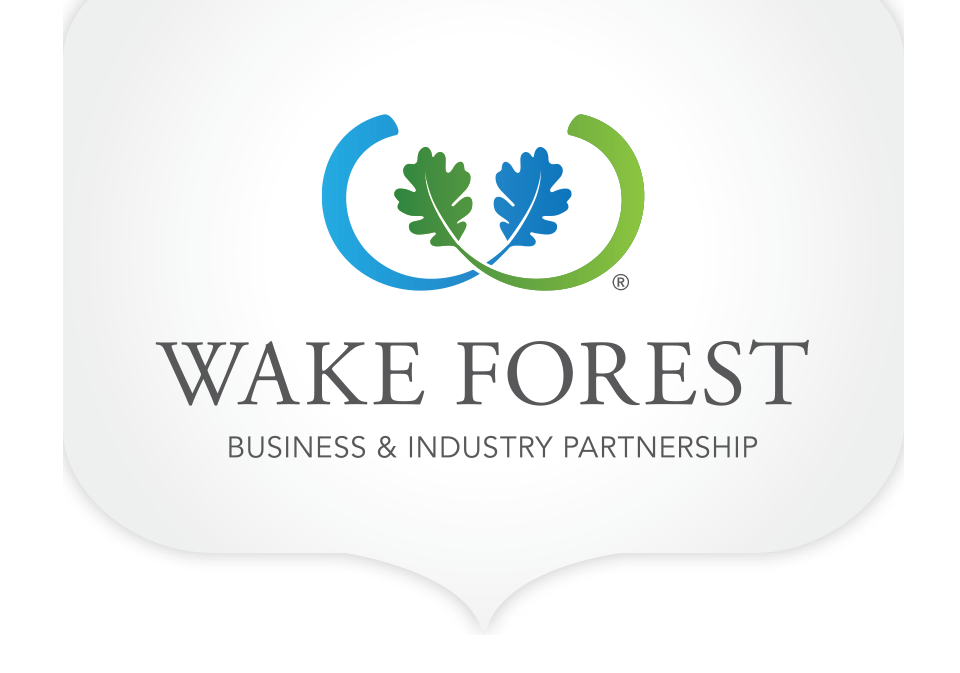Start-ups fuel every local economy, building new markets and energizing existing industries through creativity and passion. They also generate new jobs. Small firms and new start-ups account for two-thirds of net job creation in the U.S., according to the Small Business Administration (SBA), and account for 44 percent of the nation’s economic activity.
“Entrepreneurs often get overlooked by economic development organizations, many of which lack the local expertise, funding, or leadership resources to provide meaningful assistance to them,” explains Jason Cannon, President of Wake Forest Business & Industry Partnership (WFBIP). But start-ups are a priority for the Town of Wake Forest, where the local economy relies on a balance of local businesses and larger regional employers. “Given the unique nature of our community and economy, entrepreneurial growth and success are vital to our overall economic development vision,” Cannon says.
WFBIP is expanding on the best of a selection of entrepreneurial resources it has piloted over the past couple of years. Starting in the new year, local start-ups will be able to take advantage of expansive new resources through the Wake Forest Founders program. The Founders program will serve as a cohort-based system of technical, strategic, and social support for local start-ups. Included will be “innovation programming” in the form of a regular series of workshops and learning opportunities, as well as networking events tailored to entrepreneurs. Those offerings will be open to a broad audience, including individuals with little more than a business idea and the dream of setting it into motion.
Wake Forest Founders will also serve as a start-up accelerator, a residency program available to small cohorts of promising firms with local roots and clear business models. “We’ll be looking for established companies that are hoping to scale,” says Clark Rinehart, Founder of Coworking NC and former Interim Executive Director of Innovate Raleigh. Rinehart is working closely with WFBIP and other partners in establishing Wake Forest Founders. “In a lot of ways, I will be the point guard of the program,” Rinehart says. “My role will be to ensure impact players are in front of the right people so local founders get the support they need.”
Sheryl Waddell, Director of Economic Development and Innovation Hubs for Innovate Carolina, a part of UNC Chapel Hill, will help Wake Forest Founders develop and deliver innovation programming tailored around the needs of the town’s small firms. “We’ll have different workshops and fireside chats – maybe a ‘Marketing 101’ or a ‘Reverse Pitch’ from investors looking for companies to support,” Waddell explains.
The program hopes to launch these monthly offerings in January 2024. At the same time, a call for applicants will go out to potential accelerator participants. Most of the learning events will be in-person, though some will take place on a virtual platform. Exit surveys distributed after the events will help Waddell and other program leaders adjust content, as well as gauge preferences for venues and scheduling.
There will also be networking events to bring local entrepreneurs into contact with each other. “More collaboration means more innovation,” Waddell says.
Also helping ignite Wake Forest Founders will be Tim Flood, Interim Executive Director of the international award-winning accelerator program Launch Chapel Hill and a faculty member at UNC’s Kenan Flagler School of Business. “Tim is our accelerator guru,” says Clark Rinehart.
Business accelerators began demonstrating their economic development prowess in 2005 with the establishment of Y Combinator Management LLC, which supports tech-oriented start-ups. The venture began in Boston and now also has facilities in Mountain View, Cal. and San Francisco. Y Combinator has supported the launch of more than 4,000 companies, including prominent names like Airbnb, Coinbase, DoorDash, Dropbox, and Reddit.
A 2019 study conducted for the British Department of Business, Energy, and Industrial Strategy found that publicly supported business accelerators boosted the entrepreneurial ecosystems of surrounding communities in terms of attraction of start-up capital and other aggregate economic measures. The research team, led by academics from the London School of Economics, surveyed 428 U.K. start-ups regarding their attendance in an accelerator. Sixty-four percent of respondents reported that their experiences were either “significant” or “vital” to their success.





